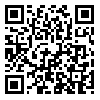1- PHD Student, Department of Linguistics, Marv.C., Islamic Azad University, Marvdasht, Iran.
2- Assistant Professor, Department of Linguistics, Marv.C., Islamic Azad University, Marvdasht, Iran. ,mh.sharafzadeh@iau.ac.ir
3- Assistant Professor, Department of Linguistics, Marv.C., Islamic Azad University, Marvdasht, Iran.
2- Assistant Professor, Department of Linguistics, Marv.C., Islamic Azad University, Marvdasht, Iran. ,
3- Assistant Professor, Department of Linguistics, Marv.C., Islamic Azad University, Marvdasht, Iran.
Abstract: (240 Views)
Objective: Sarcasm is a complex communicative phenomenon that relies on multimodal cues, including prosodic and gestural signals. Understanding how these cues interact contributes to the broader framework of audiovisual prosody. This study aimed to explore the interaction between prosodic and gestural cues in sarcastic utterances, examining how these multimodal features co-occur and differ from non-sarcastic speech.
Methods: A corpus of 33 sarcastic utterances produced by a professional ironist in a semi-summary genre television monologue was analyzed. Each sarcastic utterance was compared to a non-sarcastic utterance immediately preceding it. Prosodic and gestural cues were systematically labeled using PRAAT and ELAN software. Quantitative analyses were complemented by an in-depth qualitative examination of four sarcastic utterances to investigate the interplay of lexical-syntactic, prosodic, and gestural patterns.
Results: Quantitative findings indicated that sarcastic utterances contained a higher density of prosodic and gestural cues compared to the preceding non-sarcastic utterances. Moreover, prosodic and gestural cues were found to appear both in alignment and independently, often functioning as gestural codas. Qualitative analysis revealed a diverse range of relationships between lexical-syntactic structures, prosody, and gestures in the production of sarcasm.
Conclusion: The study highlights the multimodal nature of sarcasm, demonstrating that prosodic and gestural cues jointly contribute to its expression. These findings support the audiovisual prosody framework and suggest that irony comprehension relies on complex cue integration across modalities.
Methods: A corpus of 33 sarcastic utterances produced by a professional ironist in a semi-summary genre television monologue was analyzed. Each sarcastic utterance was compared to a non-sarcastic utterance immediately preceding it. Prosodic and gestural cues were systematically labeled using PRAAT and ELAN software. Quantitative analyses were complemented by an in-depth qualitative examination of four sarcastic utterances to investigate the interplay of lexical-syntactic, prosodic, and gestural patterns.
Results: Quantitative findings indicated that sarcastic utterances contained a higher density of prosodic and gestural cues compared to the preceding non-sarcastic utterances. Moreover, prosodic and gestural cues were found to appear both in alignment and independently, often functioning as gestural codas. Qualitative analysis revealed a diverse range of relationships between lexical-syntactic structures, prosody, and gestures in the production of sarcasm.
Conclusion: The study highlights the multimodal nature of sarcasm, demonstrating that prosodic and gestural cues jointly contribute to its expression. These findings support the audiovisual prosody framework and suggest that irony comprehension relies on complex cue integration across modalities.
Send email to the article author
| Rights and permissions | |
 |
This work is licensed under the Creative Commons - Attribution 4.0 International. |






